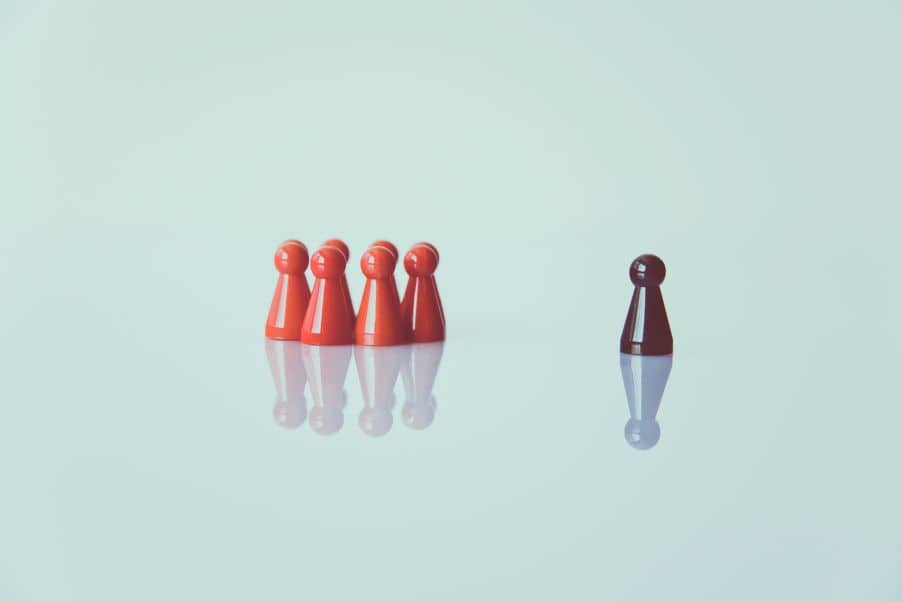Hi there,
What’s the Story?
It’s a busy month so far and some of my hardest training runs for the marathon are coming up. I am running the New York Marathon on November 3rd to raise money for RISE AGAINST HUNGER, a terrific charity providing food to needy people.
In other news, this week’s podcast episode was a fun one as we explored the cognitive biases that dictate where our attention goes. I go deep into some of the brain habits that lead us astray. For a taste, check out the article below. You can find the episode at: video.owenfitzpatrick.com.
__________________
The Cognitive Illusions: How Your Brain Shapes Reality
Estimated reading time: 6 minutes 38 seconds
Your brain is a master illusionist, constantly filtering, distorting, and rearranging information to shape your perception of reality. You might walk into a room and feel like you’re taking it all in, but in truth, you’re missing most of what’s happening around you.
Your brain selectively chooses what to focus on, prioritizing certain pieces of information over others. Ever wondered why first impressions stick so strongly? Or why one negative comment can drown out a dozen compliments? These phenomena aren’t just random quirks— they’re deeply rooted in cognitive biases.
In this edition of our newsletter, we delve deep into the world of cognitive biases, those mental shortcuts that influence how we perceive and interpret the world around us. By understanding these biases, you’ll gain insight into why you think the way you do and how you can take control of your perceptions.
From the anchoring effect to the negativity bias, these biases have a profound impact on your decisions, judgments, and overall view of reality.
Let’s pull back the curtain and explore how these cognitive illusions shape your life, often without you even realizing it.
The Anchoring Effect: The Power of First Impressions
Let’s start with the anchoring bias. This bias is the brain’s tendency to rely too heavily on the first piece of information it receives, allowing this initial data to anchor our subsequent judgments.
Whether it’s meeting someone new or negotiating a price, that first piece of information heavily influences our thoughts and decisions.
Consider salary negotiations. The first number mentioned in the conversation sets the tone for the entire negotiation. Even if it’s a low offer, that number anchors the discussion, making any counteroffer seem more like a reaction than a fair starting point.
This is why first impressions—whether in business or personal life—are so crucial. They set the stage for everything that follows, coloring our perceptions in ways that are hard to shake off.
This bias isn’t just about numbers or first impressions. It also affects how we perceive new information in various contexts.
For instance, in a healthcare setting, a patient might anchor their expectations of a treatment’s effectiveness based on the first piece of information they receive—whether it’s positive or negative. This initial anchor can skew how they perceive subsequent results, regardless of their actual progress.
Availability Bias: The Misleading Ease of Memory
Next up is the availability bias, which describes our tendency to overestimate the likelihood of events based on how easily they come to mind. This bias often leads us to believe that dramatic, memorable events—like plane crashes or terrorist attacks—are far more common than they actually are.
For example, after hearing about a plane crash on the news, you might irrationally fear flying, even though statistically, flying remains one of the safest modes of travel. The availability bias isn’t limited to recent events; it’s also influenced by how often we encounter certain ideas or images. If something is frequently discussed or highly dramatic, it sticks in our minds, leading us to believe it’s more prevalent than it really is.
This bias extends beyond our personal fears. It can influence how we perceive trends, dangers, and even the prevalence of certain behaviors in society.
For instance, if you frequently hear about celebrity infidelity in the media, you might overestimate how common cheating is, believing “everyone’s doing it.” The availability bias skews our perception, making us think that the most memorable or frequently discussed events are the most likely to occur, even when the data says otherwise.
Negativity Bias: Why Bad News Sticks Like Glue
Now let’s talk about the negativity bias—our brain’s tendency to focus more on negative experiences than positive ones. This bias explains why a single criticism can overshadow a flood of compliments and why news outlets tend to focus on disasters and scandals.
From an evolutionary perspective, this makes sense. Our ancestors needed to pay close attention to potential threats to survive. Today, however, this bias can lead us to overemphasize the negative aspects of our lives, often at the expense of the positive.
This is why a bad day at work can make you forget the week of success that preceded it or why a small argument in a relationship can feel like the end of the world.
Negativity grabs our attention more effectively than positivity, which is why it’s so prevalent in the media. But this bias doesn’t just affect our mood; it can skew our decision-making and distort our view of reality.
Recognizing the negativity bias in action is the first step toward countering its effects. By consciously focusing on the positive aspects of your experiences, you can balance out this bias and gain a more accurate perspective on your life.
Recency Bias: The Trap of Recent Events
The recency bias is another cognitive shortcut that our brains use to make sense of the world. This bias causes us to place greater importance on recent events than those that occurred further in the past. While it can help keep us aware of current situations, it can also lead to distorted judgments.
For example, in a relationship, a couple of recent arguments might lead you to believe that your relationship is in trouble, even if the past year has been filled with joy and harmony.
Similarly, in business, a recent market trend might seem more significant than it really is, simply because it’s fresh in your mind.
The recency bias can cause us to overreact to short-term changes and lose sight of the bigger picture.
By recognizing when this bias is influencing your thoughts, you can step back and take a more balanced view, considering both recent events and long-term trends before making decisions.
Mere Exposure Effect: The Allure of the Familiar
The mere exposure effect is our brain’s tendency to develop a preference for things simply because they are familiar.
This bias was popularized by psychologist Robert Zajonc in the 1960s, who demonstrated that we naturally tend to prefer things we’ve encountered multiple times.
This bias explains why you might gravitate toward a particular brand, not because it’s the best, but because you’ve seen its ads everywhere. It’s also why spending time with someone can lead to increased affection, simply because you’re more familiar with them.
However, this preference for the familiar can sometimes lead us to overlook better, less familiar options.
It’s important to be aware of the mere exposure effect when making decisions. Ask yourself whether you genuinely like something or if you’re just accustomed to it.
By challenging this bias, you can make more deliberate choices and open yourself up to new experiences and opportunities.
Clustering Illusion: Seeing Patterns That Aren’t There
Finally, let’s explore the clustering illusion—a cognitive bias where we perceive patterns in random events. Our brains are wired to find patterns, a useful trait for making sense of the world. However, this tendency can also lead us to see connections where none exist.
For example, you might notice that you always seem to argue with your partner during weekends away, leading you to believe that travel causes conflict. In reality, the arguments could be due to stress or other factors unrelated to travel.
Similarly, in business, you might believe that sales always spike at the beginning of the month, based on a few recent instances, even though there’s no consistent pattern.
The clustering illusion can lead to erroneous beliefs and decisions, turning random events into misleading patterns.
By being aware of this bias, you can approach situations with a more rational mindset, ensuring that you don’t fall into the trap of seeing connections where none exist.
Conclusion: Mastering Your Cognitive Biases
Our brains are incredible, but they’re not infallible. Cognitive biases like the anchoring effect, availability bias, negativity bias, recency bias, mere exposure effect, and clustering illusion can all lead us astray, distorting our perceptions and influencing our decisions in subtle but powerful ways. By becoming aware of these biases, we can take control of our thinking, challenge our assumptions, and make more informed, balanced decisions.
Understanding these biases isn’t just about improving your decision-making—it’s about gaining a deeper insight into how your mind works. By recognizing these cognitive shortcuts, you can better navigate your reality, avoiding the pitfalls that these biases often create. Keep questioning, keep learning, and always strive to see beyond the surface.
For a more in-depth discussion on this topic, tune in to the Changing Minds podcast this week and explore more about the fascinating world of cognitive biases.
____________________
The Brain Prompt
This week, pay close attention to how some of these cognitive biases influence your daily decisions.
Notice when you rely on first impressions or when a recent event skews your perspective.
Try to identify moments when the availability bias leads you to overestimate the likelihood of a dramatic event, or when the negativity bias makes a single criticism feel overwhelming.
By becoming aware of these biases in action, you can start to challenge them and see the world with clearer eyes.
Feel free to forward this newsletter to anyone you know who would be interested. They can sign up at owenfitzpatrick.com/newsletter.
Cheers,
Owen.





